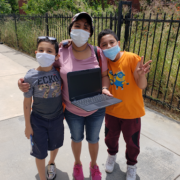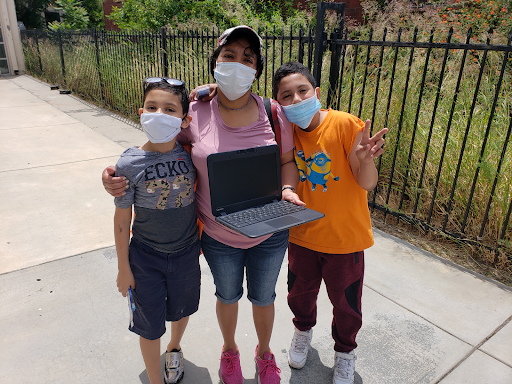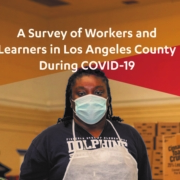By Sophia L. Ángeles, Graduate Student Researcher; Janna Shadduck-Hernández, Project Director, UCLA Labor Center; and Saba Waheed, Research Director, UCLA Labor Center
This past June, the UCLA Labor Center, in collaboration with the Los Angeles Community College District Dolores Huerta Labor Institute and California State University, Long Beach, published two studies examining workers and learners—college students who also work—and their unique educational and work experiences. We employed a methodology that was student-driven, engaging more than 450 undergraduate students to collect 869 surveys and conduct 75 interviews with UCLA, California Community College, and California State University workers and learners across Los Angeles County. Our hope is that these findings will provide information for colleges, employers, and policymakers to improve conditions for workers and learners.
Two-thirds of workers and learners work every single term of their undergraduate careers—the new normal for many students pursuing higher education. A majority work in low-wage jobs in the service industry. Forced to work as many hours as possible to make ends meet, two-thirds miss at least one educational opportunity because of work duties. Juggling work and school leads many to forgo internship and work-study opportunities in their fields of study that could improve opportunities in their future careers. Their situation is so stressful and overwhelming that 40% of workers and learners have considered withdrawing from school.
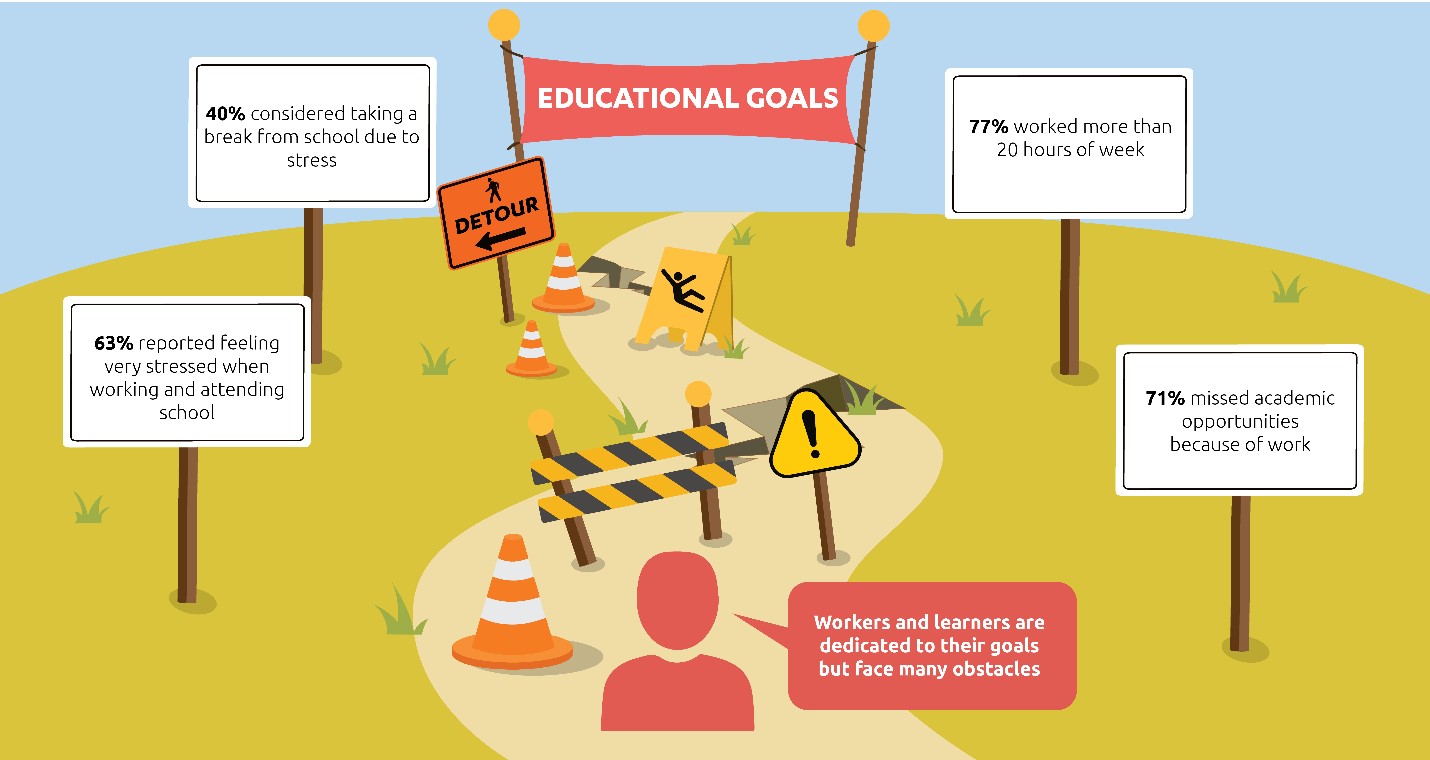
Graphic: Eunice Ho
Iris López, a recent UCLA Labor Studies graduate, explains the predicaments workers and learners face in their struggle to attend school and keep up with living expenses:
“My biggest concern has always been my ability to finance my education. My mother is a single parent who works in the fields. I feel guilty asking for help because I know she is struggling herself. Education should not cost us our ability to eat or cause concern over how we’re going to pay the next few units.”

Graphic: Eunice Ho
The COVID-19 pandemic has exacerbated conditions for workers and learners, as half were laid off, terminated, or furloughed in April and May. As schools moved to minimize the spread of COVID-19, one quarter of workers and learners were forced to make housing changes, such as moving back in with family or vacating student housing. The housing situation has further impacted learners who must attend classes remotely while managing home responsibilities, like caring for younger siblings or family members who have fallen ill.
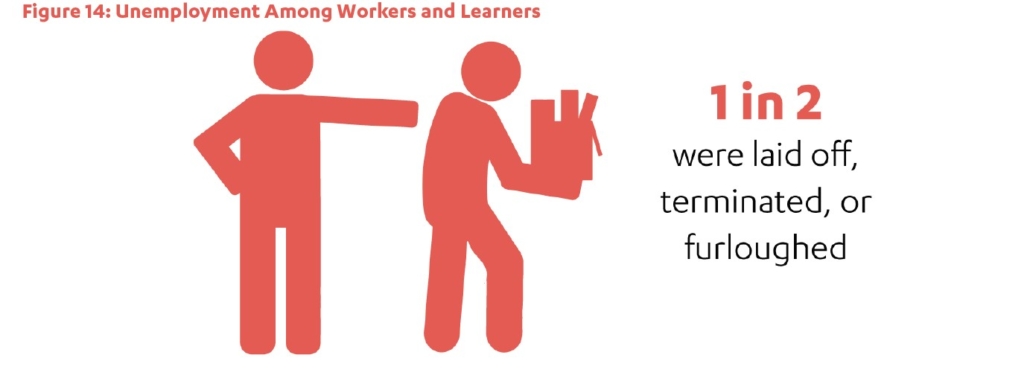
Graphic: Eunice Ho
What can be done?
Current trends point to increasing tuition and living expenses for college students, making it likely that more will have to work to offset those financial burdens.
Addressing the needs of workers and learners requires investing in California’s education system to achieve the following:
- Support learners as workers by ensuring a living wage, accommodating work schedules, and supporting students’ workplace organizing efforts.
- Strengthen career and educational pathways by making career resources more accessible, supporting paid internships that advance career goals, and increasing opportunities for networking and mentorship.
- Support workers as learners by making college affordable or free and expanding work-study opportunities.
- Provide holistic support by increasing access to mental health services and addressing food and housing insecurity.
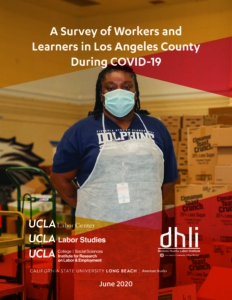 Report: Unseen Costs: The Experiences of Workers and Learners in Los Angeles County (click to download)
Report: Unseen Costs: The Experiences of Workers and Learners in Los Angeles County (click to download)
Brief: A Survey of Los Angeles Workers and Learners During COVID-19 (click to download)
Sophia L. Ángeles is a graduate student researcher with the UCLA Labor Center’s Worker and Learner project and a UCLA PhD candidate. Her research focuses on the intersection of immigration and language to examine newcomer youths’ educational experiences and their K–16 trajectories.
Janna Shadduck-Hernández, Ed.D., is a project director at the UCLA Labor Center and teaches for UCLA Labor Studies and the Graduate School of Education and Information Studies. Her research and teaching focus on developing culturally relevant, participatory educational models with first- and second-generation university students, community members, and youth, with a focus on the organizing efforts of low-wage workers to combat labor and workplace violations.
Saba Waheed is research director at the UCLA Labor Center. She has over fifteen years of research experience developing projects with strong community participation. With her team at the Labor Center, she coordinated the first ever study of domestic work employers, launched a study of young people in the service economy, and conducted research on the taxi, garment, nail salon, construction, and restaurant industries.


